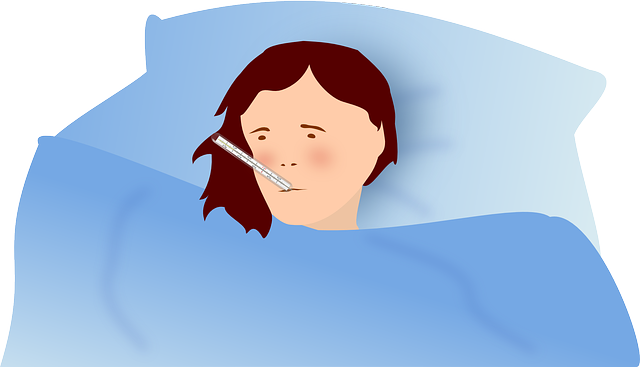The elements that winter brings make everyone more likely to get the flu and the common cold. These suggestions can be used by cancer patients whose health is already in poor shape to lower their flu risk and improve their overall health during the winter months.
Because some of the mechanisms are quite similar, the symptoms of an infection or flu frequently resemble those of cancer. Rarely, patients who initially thought they had the flu are later diagnosed with cancer. This could happen as the flu season approaches. Your immunity is weak. As a result, you are ill and have a fever. Then, when you go to get a chest X-ray, you find out that you have cancer.
If a cancer patient gets the flu or the common cold, they are more likely to get serious health problems and infections because chemotherapy and radiation therapy weaken the immune system. There are a few things cancer patients can do to avoid getting sick because these illnesses are harder to fight.
Examples of common symptoms
Despite the fact that it is uncommon for cancer to be mistakenly diagnosed as the flu, a few instances have made headlines. For example:
- In 2012, a woman who had been fighting flu symptoms for weeks was treated for thyroid cancer at the Mayo Clinic in Jacksonville, Florida.
- In a 2016 interview, Jaime Luis Gomez, better known as rapper Taboo and a former member of the pop group The Black Eyed Peas, stated that he believed the flu was to blame for his pain, headache, and shortness of breath. He later received the news that he had stage 2 testicular cancer.
Clinical and Lifestyle Management
Panic over incorrect diagnoses is unnecessary. Those who have been diagnosed with the flu or are experiencing flu-like symptoms should not be alarmed or mistaken for something else right away. But they should see a doctor if their symptoms get worse or don’t go away after two weeks. Concern ought to be raised if you have an infection that persists for a period of time that is longer than the average, which is especially important for seniors. Then you need to go to your doctor and tell them that this won’t go away.
Cancer may make seasonal flu and fever more likely to happen. It’s also important to know that cancer patients may be more likely to get the flu because their immune systems may be weaker. Here are some suggestions for cancer patients and their caregivers to consider as the flu season approaches:
- Get the flu shot. The flu vaccine is safe for cancer patients, according to the American Cancer Society. However, consult your physician first.
- Ensure that your caregivers and family members are also vaccinated.
- If you must be in a large group, wear a mask or stay out of the crowd.
- Wash your hands often.
- Contact your doctor as soon as possible if you think you might have caught the flu. Prophylactic antibiotics may be prescribed by a doctor to alleviate symptoms or prevent the flu from developing.
Get vaccinated against the flu as soon as possible
To lower your risk of contracting the flu throughout the winter, you and everyone in your family who is six months or older should get the flu shot as soon as it becomes available. Even if you have not yet been diagnosed with cancer, you still need to take serious anti-flu precautions. Cancer patients should get the inactivated vaccine, which can be given by shot or injection. Vaccination may not be the best option for some patients. Before getting the flu shot, you should talk to your doctor about which vaccine you should get.
Other Common Precautions
Germs can spread through any means, regardless of whether you have cancer. This winter, be smart and take these common precautions to avoid the flu and other seasonal illnesses.
- Always remember to wash your hands: when you go to the bathroom, before you treat any wounds, when you go to the hospital or the doctor, or when you touch another person. Use an alcohol-based sanitizer or soap and warm water to clean.
- Keep your fingers away from your mouth and avoid touching your nose or eyes.
- Stay away from people who are sick or from places where there are a lot of germs, like schools, daycares, and other places where germs can easily be spread.
- Avoid cold temperatures, which may increase the likelihood of illness.
- Discuss taking a vitamin D supplement with your doctor.
- In the event that you do fall ill, be prepared with appropriate foods, medicines, tissues, and hand cleaners. You will already have everything you need to take care of yourself. Discuss what you should do if you do become ill with your doctor.
- If you start to feel sick, stay home and limit your activities. Speak with your doctor.
References
https://www.cancercenter.com/community/blog/2019/08/the-flu-and-cancer-share-many-common-symptoms

